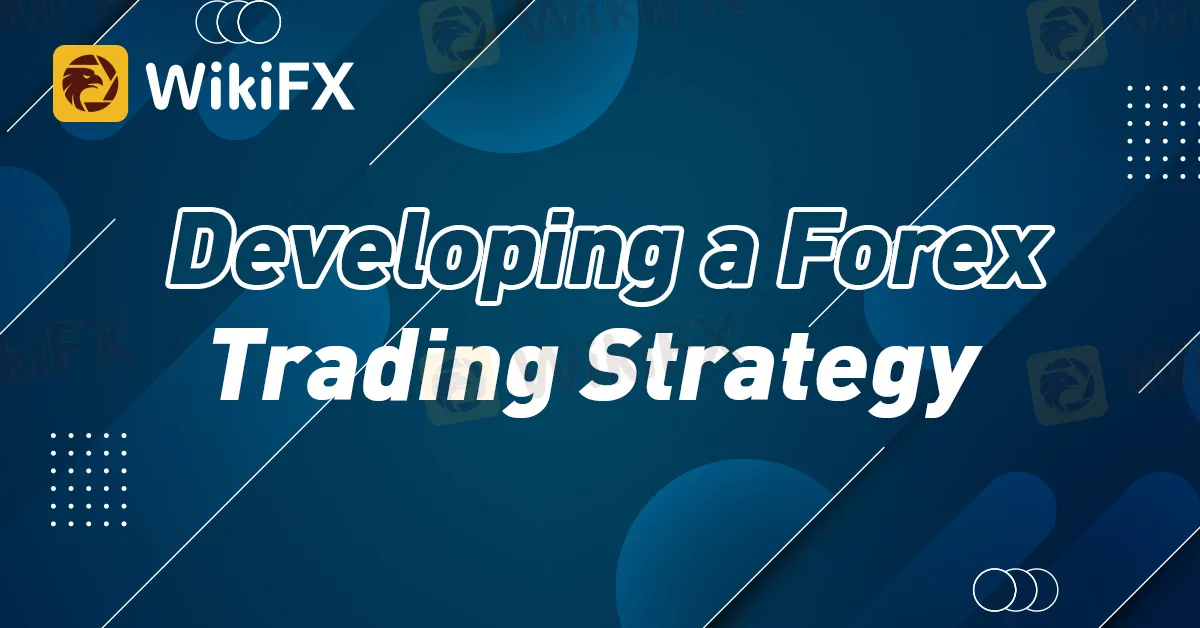简体中文
繁體中文
English
Pусский
日本語
ภาษาไทย
Tiếng Việt
Bahasa Indonesia
Español
हिन्दी
Filippiiniläinen
Français
Deutsch
Português
Türkçe
한국어
العربية
Developing a Forex Trading Strategy
Abstract:Foreign exchange, or Forex, trading is the buying and selling of currencies with the aim of making a profit from the price fluctuations. As one of the largest financial markets in the world, Forex trading has become increasingly popular in South Africa. However, to succeed as a Forex trader, it is essential to have a well-developed trading strategy. In this article, we will discuss how to develop a Forex trading strategy in South Africa and introduce you to a helpful resource called WikiFX.

Foreign exchange, or Forex, trading is the buying and selling of currencies with the aim of making a profit from the price fluctuations. As one of the largest financial markets in the world, Forex trading has become increasingly popular in South Africa. However, to succeed as a Forex trader, it is essential to have a well-developed trading strategy. In this article, we will discuss how to develop a Forex trading strategy in South Africa and introduce you to a helpful resource called WikiFX.
Step 1: Choose a Trading Style
The first step in developing a Forex trading strategy is to choose a trading style that suits your personality, risk tolerance, and goals. The most common trading styles are day trading, swing trading, and position trading. Day trading involves opening and closing trades within a day, while swing trading involves holding trades for a few days or weeks. Position trading, on the other hand, involves holding trades for months or even years.
Step 2: Analyze the Market
The second step is to analyze the Forex market to identify potential trading opportunities. This can be done using technical analysis, fundamental analysis, or a combination of both. Technical analysis involves studying past price movements and identifying patterns that can be used to predict future price movements. Fundamental analysis, on the other hand, involves analyzing economic, political, and social factors that can affect the value of a currency.
Step 3: Develop a Trading Plan
Once you have identified potential trading opportunities, the next step is to develop a trading plan. This should include entry and exit points, stop loss and take profit levels, and risk management strategies. It is essential to stick to your trading plan and avoid making impulsive decisions based on emotions.
Step 4: Backtest Your Strategy
Before using your trading strategy in a live market, it is crucial to backtest it using historical data. This will help you identify any weaknesses in your strategy and refine it for better results. Backtesting can be done using specialized software or manually.
Step 5: Monitor and Adjust Your Strategy
Once you start using your trading strategy in a live market, it is essential to monitor its performance and adjust it if necessary. Forex trading is a dynamic market, and what works today may not work tomorrow. Regularly reviewing and adjusting your strategy will help you stay ahead of the game.
Introducing WikiFX
WikiFX is a comprehensive Forex broker database that provides information on regulated brokers worldwide. It also includes user reviews and ratings, making it easier for traders to choose a reliable broker. Additionally, WikiFX offers a range of educational resources, including trading strategies, market analysis, and trading psychology. You can access WikiFX online, and it is completely free to use.
In conclusion, developing a Forex trading strategy in South Africa requires careful analysis, planning, and testing. By following the steps outlined in this article, you can develop a strategy that suits your trading style and helps you achieve your financial goals. Additionally, resources like WikiFX can provide valuable information and tools to support your trading journey.

Disclaimer:
The views in this article only represent the author's personal views, and do not constitute investment advice on this platform. This platform does not guarantee the accuracy, completeness and timeliness of the information in the article, and will not be liable for any loss caused by the use of or reliance on the information in the article.
Read more

Risk Involved with Cabana Capital – Every Trader Should Know
Cabana Capital has changed its name and logo, basically everything about its identity. This seems a bit suspicious, and it's something you should definitely be concerned about. In this article, you’ll learn about the red flags that every trader needs to watch out for.

New to Forex Trading in India? Here's How You Can Start and Maximize
Want to begin your forex trading journey in India? Here's a guide that will help you open and close trading positions effectively, resulting in enhanced returns and minimized risks.

Top Forex Trading Strategies for the London Session
The London forex session is one of the most active and liquid periods in the forex market. Spanning from 8:00 AM to 4:00 PM GMT, this session overlaps with the Asian and New York sessions, providing traders opportunities to check on volatility and high trading volume. In this article, we’ll explore the top forex trading strategies for the London session.

MT4 and MT5 Platforms - Helping Traders Up Their Forex Trading Game
Developed by MetaQuotes Software Corp, MetaTrader 4 and MetaTrader 5 apps come integrated with a wide range of tools that enable seamless forex investments. Learn more about their utilities.
WikiFX Broker
Latest News
XTB Hack 2025: Major Security Breach Exposes Client Accounts
These are America's 10 weakest state economies most at risk in a recession
These are America's 10 strongest state economies best prepared for a recession
Federal Reserve quietly responds to Trump administration attacks over renovation
Tariff Windfall Drives Surprise $27 Billion US Budget Surplus In June
Top Wall Street analysts are upbeat about these dividend-paying stocks
Singapore's economy grows 4.3% in second quarter, beating expectations
Global week ahead: Trade tensions cloud earnings and the G20 heads south
Want to Succeed in Forex? Start with the Right Trading System
XTB Hack 2025: Major Security Breach Exposes Client Accounts
Currency Calculator


